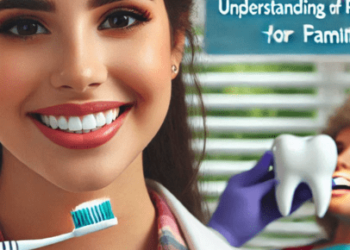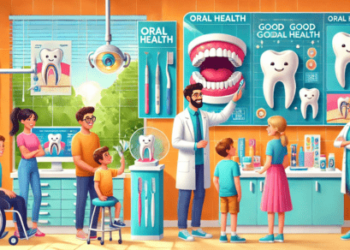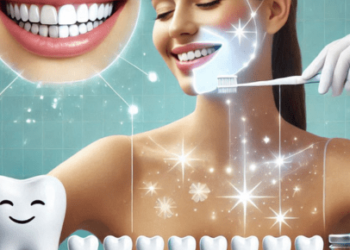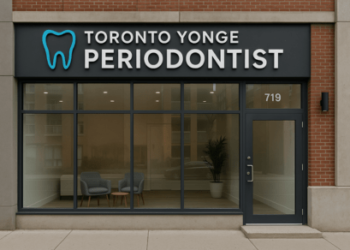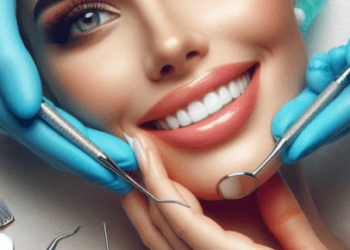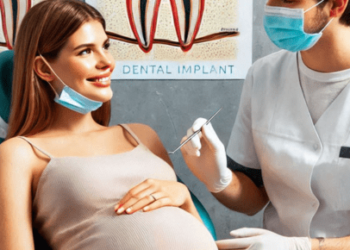
Sleep apnea, a chronic sleep disorder characterized by recurring interruptions in breathing during sleep, poses a significant threat to overall health and well-being. If left untreated, sleep apnea can lead to a multitude of health complications, including cardiovascular disease, diabetes, cognitive impairment, and mental health disorders. However, oral appliances offered by the Rancho Cucamonga dentist have emerged as a highly effective solution for managing sleep apnea, offering a non-invasive and comfortable alternative to traditional CPAP therapy.
What is sleep apnea?
Sleep apnea is a chronic sleep disorder characterized by recurring episodes of partial or complete upper airway obstruction during sleep, resulting in interrupted breathing patterns. This obstruction leads to repeated awakenings, fragmented sleep, and reduced oxygen levels in the body. Sleep apnea can be classified into three main types: Obstructive Sleep Apnea (OSA), the most common form, caused by physical blockage of the airway; Central Sleep Apnea (CSA), resulting from a lack of neural signals to breathe; and Mixed Sleep Apnea, a combination of both OSA and CSA. If left untreated, sleep apnea can lead to serious health consequences, including cardiovascular disease, diabetes, cognitive impairment, and increased risk of accidents and mortality.
What is the impact of sleep apnea on overall health?
Sleep apnea may predispose you to several negative consequences on your overall health if not treated on time.
The impact of sleep apnea on overall health may include the following:
Impact on cardiovascular health
Sleep apnea has been linked to an increased risk of cardiovascular disease, including high blood pressure, heart attacks, and strokes. The repeated interruptions in breathing during sleep can lead to:
- Increased blood pressure
- Inflammation
- Cardiovascular stress
Impact on respiratory health
Sleep apnea can also exacerbate respiratory conditions like asthma and chronic obstructive pulmonary disease (COPD). The repeated episodes of low oxygen levels during sleep can lead to:
- Worsening respiratory symptoms
- Increased risk of respiratory infections
- Decreased lung function
Impact on mental health
Sleep apnea can have a significant impact on mental health, leading to:
- Depression
- Anxiety
- Mood swings
- Fatigue
Impact on cognitive function
Sleep apnea can affect cognitive function, leading to:
- Memory loss
- Difficulty concentrating
- Decreased productivity
- Increased risk of dementia
Impact on quality of life
Sleep apnea can significantly impact daily life, leading to:
- Fatigue
- Headaches
- Difficulty staying awake during the day
- Strained relationships
How do oral appliances help treat sleep apnea?
The oral appliances for sleep apnea are designed to:
- Advance the lower jaw: Pushing the jaw forward to keep the airway open.
- Keep the tongue from falling back: Preventing the tongue from obstructing the airway.
- Lift the soft palate: Supporting the soft palate to prevent it from collapsing.
- Stabilize the airway: Keeping the airway open to ensure uninterrupted breathing.
What are the types of oral appliances for sleep apnea?
Sleep apnea can be successfully treated with a wide range of oral appliances such as:
- Mandibular advancement devices (MADs): The most common type, advancing the lower jaw.
- Tongue-retaining devices (TRDs): Holding the tongue forward.
- Soft palate lifters: Supporting the soft palate.
Wrapping up
Sleep apnea is a serious sleep disorder that can have far-reaching consequences for overall health, increasing the risk of cardiovascular disease, diabetes, cognitive impairment, and mental health disorders. However, oral appliances offer a highly effective solution for managing sleep apnea, providing a non-invasive, comfortable, and portable treatment option. By advancing the lower jaw, keeping the tongue from falling back, and lifting the soft palate, oral appliances can significantly reduce the frequency and severity of apneic episodes, thereby mitigating the risks associated with sleep apnea.
With proper treatment, you can improve your quality of life, regain energy, and reduce the risk of related health complications. If you suspect you or a loved one may be suffering from sleep apnea, consult with a healthcare professional or a dentist specializing in sleep apnea treatment to explore the benefits of oral appliances and take the first step towards a healthier, more restful sleep.

